Le Cineaste: An award winner of MIFF
- Apr 27, 2022
- 16 min read
After his first critical and commercial success, director Marty Reed battles to get his next film made his way, staying true to his vision. Faced with today’s rapidly changing cinema industry, its sex scandals and the dominance of online platforms that are changing the visual language, the production process and the way films are consumed, Marty is forced to re-evaluate his position as filmmaker and value as an artist. Le Cineaste was selected as the best feature of Montreal Independent Film Festival.
A Director's journey is a film about cinema and directing a film. The feature project is an award winner of the annual 2022 MIFF. The film is directed by Manilo Roseano, an Italian filmmaker.
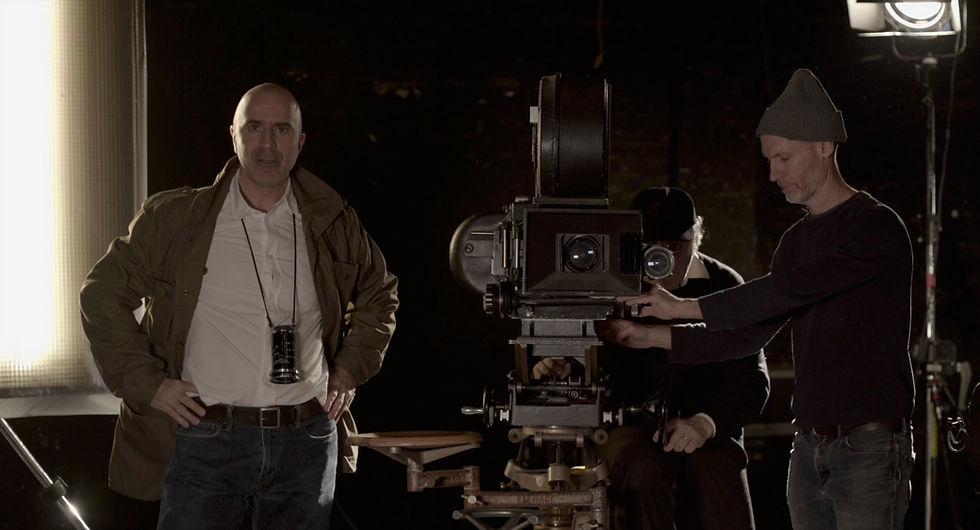
Manlio Roseano was born in Conegliano, Italy in1974. During his last two years of high school, Manlio attended a private course on film history, semiotics and cinema theory which made him fall in love with the language of cinema and filmmaking.
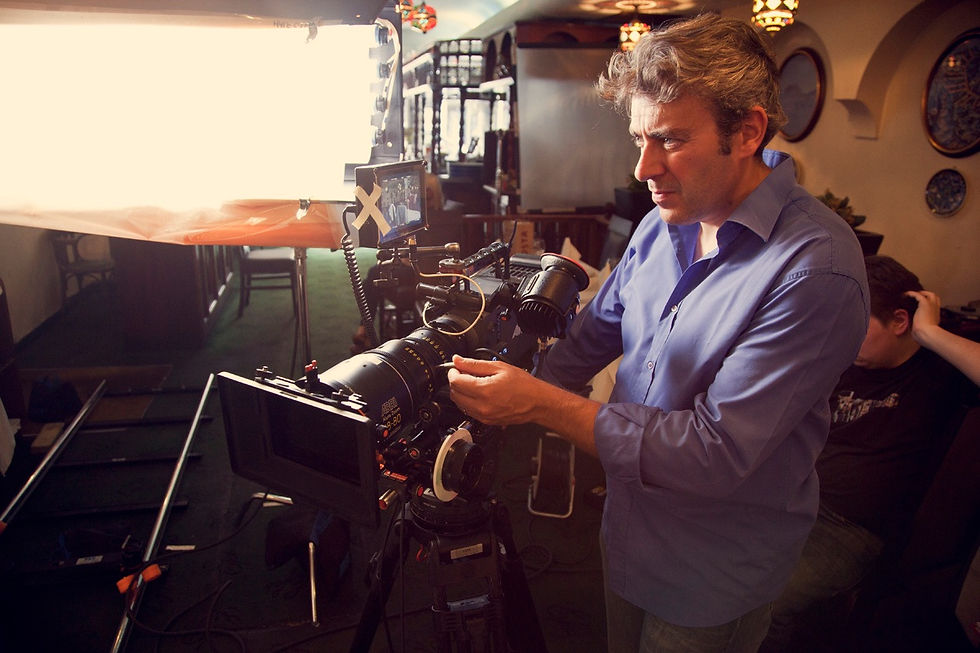
In 1995, he attended the London International Film School and later wrote, produced and directed what he considers his first short film: Dreamlife, a twenty minutes short film which was awarded the Best Short Film at the Premio Excelsior in Rome in 1997. Back in Italy, his first feature film: Il terzo leone (The third lion), gets selected in several film festival across the world and in 2002 won the Best Feature Film Award at the 2nd Fargo Film Festival, the Silver Award for Best Foreign Feature Film at the 35th Worldfest in Houston and Best Long Drama Award at the 2nd Thunderbird International Film Festival in Cedar City, UT. In April 2002 he finished the feature length documentary “Keltoi” on the Kelts in Europe and in May 2005 he worked as a production manager in Espelho Magico's film when the Portuguese legendary director Manoel De Oliveira decides to shoot his film partly in Venice. The film was an official selection at the Venice Film Festival in 2005 and Manlio was in charge of the whole organisation of the film delegation during the festival. The same year Manlio started his studies of American and German literature at the University in Venice. The following year he worked as press agent in Manoel De Oliveira’s next film: Belle toujours selected at the 63rd Venice Film Festival. In Summer 2007 Manlio attended the Independent Film Making class and the Director’s Master class at The Maine Media Workshops in Rockport, Maine, USA. In January 2008 he participated at the Rutger Hauer’s Film Factory in Rotterdam as a director and manager to shoot, together with an international crew, the short film “Ties that bind”, as part of the workshop. Since May 2009, Manlio is a script doctor and project development consultant for the FS Law Firm based in Rome. In July 2012, he directed the comedy short film “A bit older and a little bit taller”. The film won in 2013 Best Short Film Award at the Indie Spirit Film Festival in Colorado Springs, USA, Gold Remi Award at the Worldfest in Houston, Texas and is Official Finalist at the Barcelona Film Festival. In May 2019, he started shooting his first international feature film “Le Cineaste - a director’s journey”. It was our pleasure to inteview him regarding the making of his latest film which also deals with the language of cinema and filmmaking. His film was an award winning feature of Montreal Independent Film Festival.

How did you start making films and what was the first film project you worked on?
When I was 17 I started studying film history, semiotics and film language. That’s when I decided to become a film maker, so after high school and after one year at the University in Rome, I went to London to the London Film School (at my time it was called The London International FIlm School). I can only highly recommend this school to every young film maker. It was for me a brilliant and unforgettable experience. I learned so much and met great people both among the teachers and students. Coming from a film theory background and combining all my film language and semiotics studies with a pure practical school was the winning formula to become a director. Already during the first three months we had the chance to work on a short film and use real film equipment. So my first ever film as a director was “Epilogue” a three minutes short film shot on 16mm in black and white. It was a great experience and quite an ambitious film, considering all the restrictions we had as film students. I also had the chance to start a long professional relationship with my camera operator at that time: Paul Newton, who became my favourite and trusted DoP to this day.
Your feature film, Le Cineaste deals with cinema and filmmaking. What was the inspiration behind the making of a film about a director?
I started thinking about “Le Cineaste” in January 2019. At that time I was stuck again with the finance of my next project, so I decided to make something in the meantime. Together with my dear actor friend and acting teacher Gary Condes, I started writing the script.
I wanted to show a bit of my personal experiences as a film maker in nearly 25 years in the film industry. At the beginning it was a kind of work in progress, not knowing exactly where this idea was heading, but then it was very clear. So by the end of February we finished the first draft and by May 17th we started rolling camera.
The idea at the base of “Le Cineaste” is to reveal the hidden side, not necessary the dark side, of the modern film industry. What is the real commercial aspect of the film industry, what are sales agents really like (not all of them of course - thank God, but most of them), what are the compromises a director has to make to be able to get his film produced. So shooting in Cannes during the festival was crucial. I also marginally dealt with the sex scandals that lately hit the cinema industry, but without making it a fundamental subject. There are enough discussions and opinions out there.
Also I always wanted to make a film about films and show the world I know best.
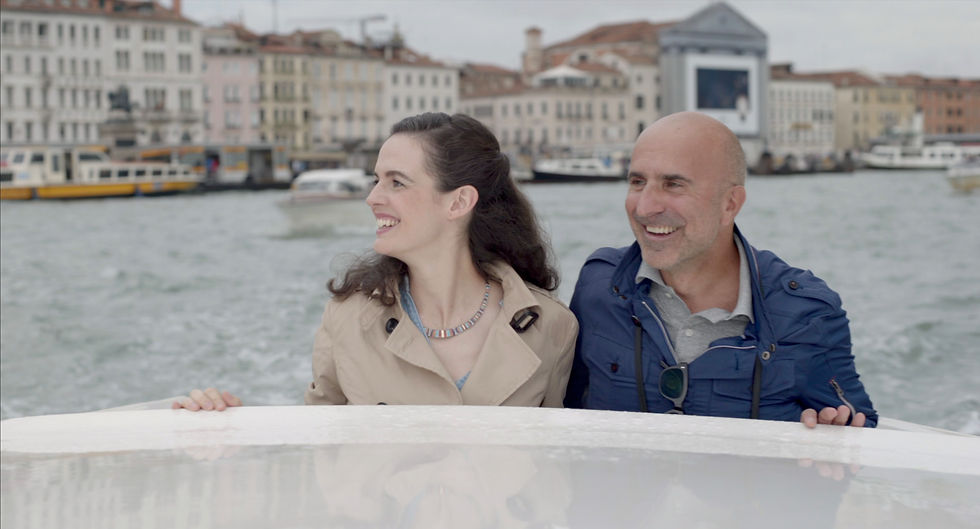
In “Le Cineaste” the main character is a film director that finds it difficult to cope with today’s fast changing film industry, based on the growing supremacy of the online platforms over the cinema distribution and market. At the end it turns out that the film he’s going to make is actually the film he’s in. His life becomes the film he’s shooting. So a film inside a film.
It turned out that “Le Cineaste” was somehow ‘prophetic’. Recently Martin Scorsese published an essay about Fellini and raising the problem of the ‘devalue’ of cinema to mere ‘content’ in the modern film industry. It seems that he watched my film before writing his essay. With my film I hope at least to make the general audience and film professionals aware of what kind of danger cinema is facing today. The first line of my film is: “Is Cinema dead?” a question that every generation of film makers and critics still asks themselves.
We should not forget that cinema is and always will be, first of all, an art form, but unfortunately today, when people are binge watching whatever the online platforms ‘suggests for them’, we tend to consider films as products to consume.
What is the most challenging aspect of being an independent filmmaker in the film industry in this era?
It’s always the money. See, a painter to show his art just needs a pencil and a piece of paper. A film maker to fully express himself, needs a lot more. Although everything starts from the script and a good idea, unfortunately film making is an expensive art.
Today things have changed a lot. The modern technology allows any film maker to invest in cheap but very good equipment. It has become more and more easy to actually shoot a film. Today is even possible to edit a feature film on a laptop. The growing of the online platforms are finally putting an end to the screens limit. In theory today we have unlimited screens, that means that every film has a potential distribution. But unfortunately the reality is a bit different. Once you make a film - with any sort of help from friends or relatives - you still have to deal with the market and commercial side of the industry. Nobody takes risks any more and most of the films look the same because they somehow meet the usual selling formula. Even the big authors of the past and still active today, for example Scorsese, are not totally free any more to make the film they want. They are still facing budget and distribution problems.
An independent film maker today has to face and deal with people the only think they know and care about is how to make money. Most of them have no clue about film making or even art in general. They just want to match the numbers on their sales estimates.
The good thing is that the big festivals - Cannes on top - are still fighting for film as art. So independent film festivals are the cradle of cinema and hopefully they always be.
To get an independent film fully financed today is getting harder and harder unless there’s some clever producer that believes in the film maker and is ready to risk and discover new talents.

How difficult is it to fund independent feature films?
I can only speak from an European point of view. I don’t know in the US, but in Europe a good way to fund a film - and maybe now the only way - is to make co-productions with different countries. There’s a lot of potential in this form of production. The only thing is that it takes a lot of time, effort and a lot of paperwork. In many European countries there are also dedicated film funds and tax incentives to invest in film productions. On top of that there are European film funds for co-productions. Recently for example a co- production with Canada and one European country is enough to apply for the Media film fund. So it all sound wonderful, in theory, but it’s not so easy at is sounds. You also need local support from a lawyer and accountant.
I tried to produce a film and get it financed for nearly 8 years. It was meant to be an European co-production, but I think I simply had bad luck or the time for that project was not right. I still believe I met, unfortunately, the wrong people that made me just waste time. So at the end I gave up and moved on. The danger in applying for European film funds is that the money around is never enough for every project, so, of course bigger names get everything.
If the project is right and can be shot in different locations in Europe and have crew and cast members form different countries, then the chances of success are much higher. Every independent film is very difficult to finance but not necessary impossible. To lower the odds you need to add as much successful elements to the project as possible. A good script sometimes is not enough unless there are some known names to back it up. Let’s say that an independent producer needs to be as much creative as a director or a writer in order to get his film financed, because dealing with finance people and distributors requires a lot of fantasy.
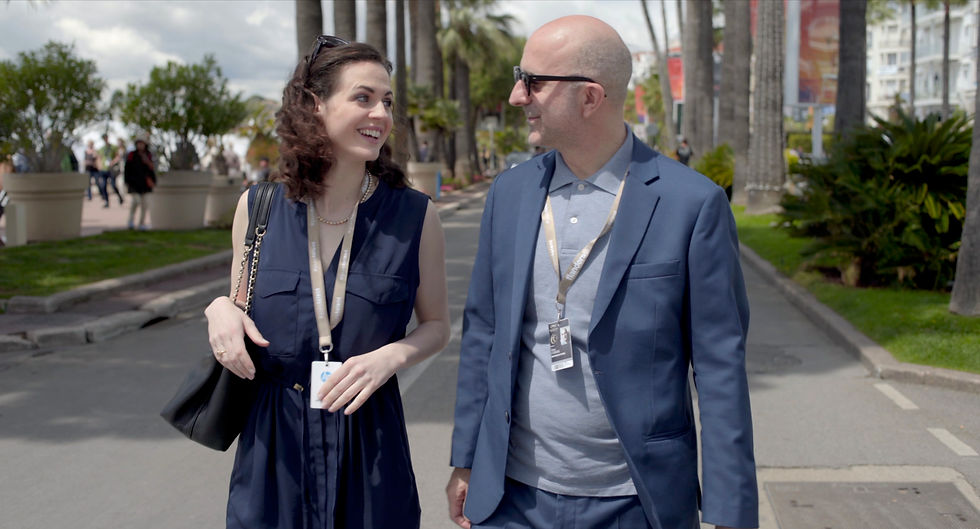
Please name three of your most favourite directors. How have they been influential in your work?
The list of course could be very long, but three is a good number.
My undisputed favourite director is Stanley Kubrick. I am not only just a fan of his films but also one of the most passionate and dedicated expert. The way he is able to use the creative elements of the film making process like lenses, actors, lights, music, editing, sound and so on, is just unique. I think he could be the real beacon of inspiration for all film makers. His film “2001 - a space odyssey” I think is the ultimate film ever made. ‘A visual experience’ as Kubrick himself has once described it. Considering also it was made in 1969, it’s an incredible and still never equaled achievement in film history.
Another huge source of inspiration for me is Federico Fellini. His ability in creating his own world puts him among the great authors of all time. His boundless imagination is for me a mine of ideas and visions that I still refer to in all my works. The most brilliant example of his genius is for me “8 & 1/2”. Again a film about a director and his difficulties of making his film. Another aspect of Fellini that I like most is the way he deals with dreams and reality. My short film “Dreamlife” is probably my most ‘felliniesque’ work so far.
Last but not least, the third film maker I admire most is Michelangelo Antonioni. A pure genius. I found his framing and the way he uses the camera simply extraordinary. His film language is so deep and complex it could be easily compared to a poem. He was famous to do the so called ‘editing in camera’, that means he had exactly in mind how the final editing of the film should look like even before rolling camera. Incredible.
In my film “Le Cineaste” there are plenty of quotes and homage to great film makers of the past and to cinema in general. It could be actually a nice and fun exercise for every young film maker to watch my film and spot them all. But to my three favourite directors I made a special tribute. One of the characters is watching “2001 - a space odyssey” in his private cinema and the ambience music in one scene is taken from “The Shining”, “Eyes Wide Shut” and “Dr. Strangelove”. The two main characters are watching at home “8 & 1/2” and “L’avventura”. Also one entire scene is set in the same park of “Blow-up” with a reference to the famous tennis play.
Of course I will never be able to reach the level of this three amazing authors, but of course in all my work as a director I inevitably put some creative elements inspired by the work of these great film makers and most of the time this is done unconsciously. What I sometimes get inspired by is the subject, or sometimes is the shooting technique, or the directing of the actors or the ‘mise-en-scene’ itself. My only regret is that they are all dead and like many other authors, unfortunately we will never see more of their films.
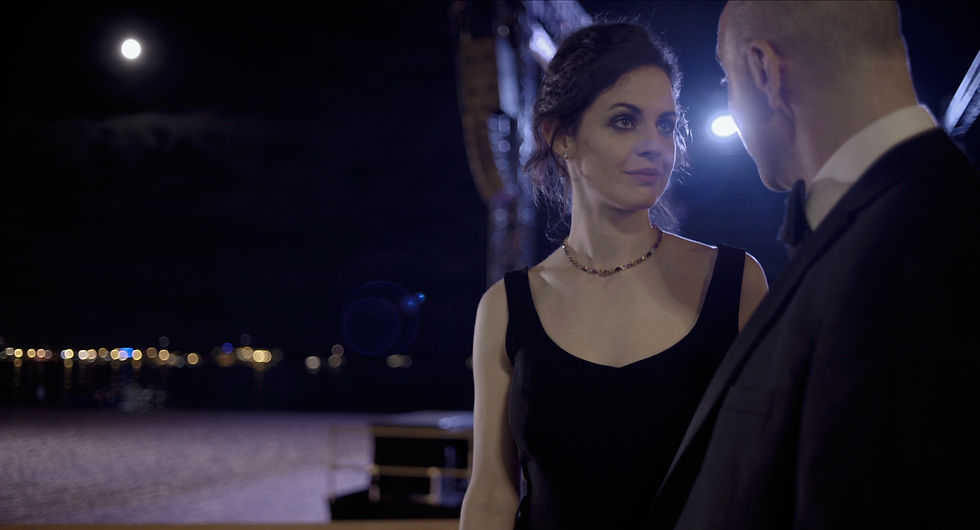
How did your film go into production and how did you finalise the cast and the crew?
“Le Cineaste” is completely self financed and thanks to the kindness and trust by everyone that worked on the film, I was able to make it. Honestly I could again go through the whole process and apply for several European film funds programs, but that would have taken ages. I wanted to do the film now as I felt it was the right time for this kind of subject.
The script was ready by the end of February 2019. We rolled camera on the 17th of May and went on in successive stages until December the same year. I had to wait until everyone was free and available to shoot. We shot for a total of 21 days. I also did the editing in complete lockdown from January to May 2020. I used a pseudonym, again a small homage to Fellini that only a few connoisseur will get it.
Thanks to my dear actor friend and co-writer I managed to get all the cast together. Most of them were his students in the Meisner acting course he is doing. The only role I casted
was the female lead. I wanted a French nuance in the character and I was really greatful to meet Georgia Winters - she’s half French - because she added a Goddard / Nouvelle Vague touch to the character of Camille (an other homage to Goddard). I don’t usually do casting sessions or contact casting directors. I do the casting myself. Why let somebody else choose for you if you can do the job yourself. All the actors were amazing and right for each part. George, Liam, Luca and Anna Marie they all worked in big films or big series and they all loved the project, so I can only say I was lucky to be able to work with such a great team of professionals. Everybody did it because they liked the script and the film. The crew was kept to a minimum of 6 people. I usually tend to work with the same group of people whenever possible so for example the DoP was my dear friend Paul with whom I went to film school together and worked together since my first short film. The rest came through recommendations by common friends. Everyone did a great job despite the budget and the time restrictions.
I think building a good crew is essential for the result of the film. The crew must not necessary be the best in the world, but has to be something that works like a clockwork together. As I director you need to build mutual understanding and trust among the crew members or they will never follow you completely through this incredible journey that is film making.

How was the film received by your audience and film festivals and what is your plan for further distribution of the film?
So far so good, I’d say. The film was distributed in the festival circuit for now. Some festivals did not accept it, some they did and so far the film won two awards. The Best Director Award at the best film awards in London in December 2020 and Best Picture at the Montreal International Film Festival. Right now I am waiting for further responses from other festivals. In the meantime, these days, it was screened at the European Film Market in Berlin. This year, as we know, it’s an online version of the famous event.
For distribution of an independent film, you need to be very patient. It takes time and considering the actual status of the film market it takes even longer than usual. The pandemic around the globe of the Coronavirus made everything even more difficult. Because of the closing of all the theatres in the world, all films were screened online and therefore there’s not enough space for distributing small films. Not that I was hoping for a wide theatrical release (I knew it from the beginning this was not the case), but once you put your film out there you compete instantly with the big guys and the market rules are tough. I aim for online release in the English speaking territories and in Europe by this year.
Of course winning a few more awards and get some attention will help the distribution. Hopefully the world situation will turn slowly back to normality and we can all go to the picture house again watching independent cinema where it belongs.

What do you recommend to other filmmakers regarding the making and the distribution of independent feature films?
As I said, making independent feature film today is more difficult as ever. The big money is in TV series or in mega-budget ‘video-games-look’ action films. So not only making an independent film is an huge effort, but showing it to the public, once made, is even tougher.
I recommend to start with a very good and strong idea. You should not pretend to reinvent the wheel (industry people are very conservative and skeptical) but the story needs to be interesting, why otherwise make a film about it. Then write a professional and unassailable script, because that is your first business card you show.
Being an independent director you need to be also an independent producer at one point or at least think about your project also with a bit of the producer’s mind. Until your name is widely known for good films, you need to put together a brilliant team that backs you up. For example if a big name actor likes your script and wants to act in it, there you go, it’s a giant leap for your project. The money will come.
The biggest step is finding a good producer that believes in the project and takes it all the way to the big screen.
One thing to remember, once a film is made it’s only half way through its journey to the screen. The distribution plays a key role in the whole process. You don’t want to watch your film only among friends and family. For that, there are the so called sales agents, so do a lot of research and try to get the least worse of them involved at an early stage.
My advise is: as a director, if you’re too sensible about your work, make somebody else deal with the selling and distribution of your film. The pool of the film markets is full of famished sharks. Once you’re happy with your final cut of your film, go on holiday and think about your next project. Let somebody else take it from there.
Usually you need to start thinking about the distribution of your film already once you’ve finished the script, before even shooting the film. A professional package of a film project should include a distribution plan based on the cast and crew, the setting and the locations of the film. For example: if you have an actor well know in a specific territory in Europe, well you will have surely some good possibilities to sell your film in that specific territory because of that actor. In my experience as script doctor and project development consultant for co-productions in Europe there’s one thing I could never stand: some unexperienced directors waste time and energy in shooting a trailer or a short version of the feature film they want to make. That does not help at all. Concentrate on what you really want to do. Be prepared and plan a lot in advance.
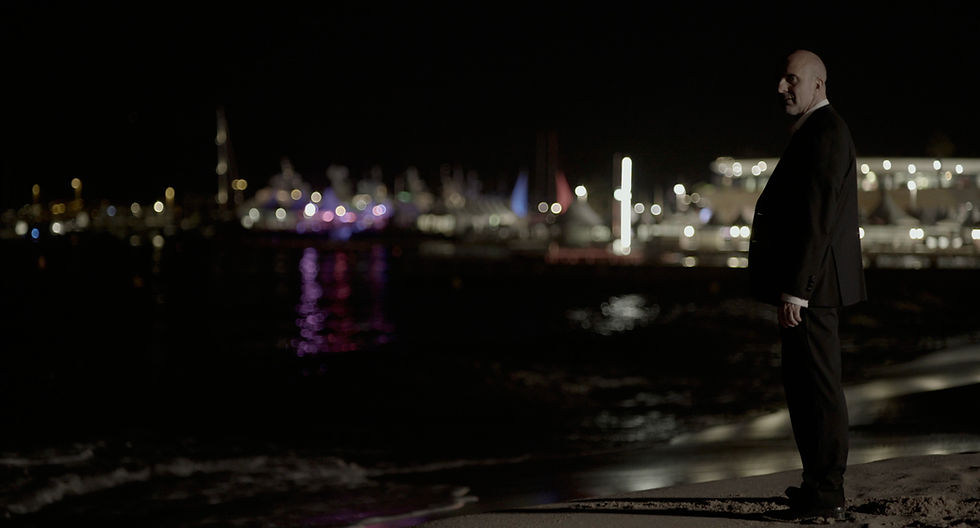
What is your next film project and what are you currently working on?
Once the world turns to normal again, I hope to carry on the pre-production of my next feature film “Angels Four”. It’s the true story of the first climb of the highest waterfall in the world: the Angel Falls in Venezuela. Based on the book by one of the real climbers, David Nott, this amazing story is not only an entertaining adventure, but also a human story about friendship, endurance and fate. The film was well developed before the pandemic, so I hope to start production by beginning of next year and shoot by autumn of 2022. Right now, locked down in a small village in the Eastern Italian Alps, I am busy writing new scripts ideas. I always look for novels to adapt. There are plenty of brilliant ideas out there. This is also a good time to write and plan future projects, so when the time comes I will have a couple of projects ready.
Why do you make films and what makes the language of cinema stand out to you amongst other arts?
Rudolf Arnheim in his book “Film as Art” puts finally an end to the long discussion whether cinema could be considered art. In fact it is the sum of all arts. This is exactly why I like making films more than any other thing. The creative tools a director has at his disposal, like a palette and brushes for a painter, are variegated and each one is an art of its own. Some of these tools are: theatre, performing arts, photography, music, sound, painting, costumes, and so on, and then there’s the unique tool only cinema has: editing. Cinema is the only art that operates with the concept of time and not because of its developing in time - so does music and theatre and other forms - but time in the literal sense. A take - from when we say “action” to “cut” - is the fixing of reality, the fixing of time. Film is a mosaic of time.
With my film theory studies background I cannot stop being fascinated by the endless opportunities film language has compare to other art forms. When a director decides where to put the camera, which lens to use, what is the frame or what camera movement to use, which music will accompany the shots and so on, it uses the “words” of the film language, but then in the editing the words become sentences and the whole film becomes an essay and meaning. The form becomes content. This is unique to cinema and to cinema only.
The big authors in film history knew very well how to use these creative tools, and some of them even invented new tools and new meanings. Like a poet ‘playing’ with language inventing new terms and meanings, a director, a true film author, ‘plays’ with the ‘mise-en- scene’ to create meanings and to communicate with the language of film.
Of course not all the audience will get or understand every message or detail, but in general, even at an unconscious level, the film language will come through and originates emotions in the audience.
This aspect of the film language is exactly what we all are about to loose in today’s film industry. If films are more and more treated like products to consume, then all this has no meaning, films become dull, empty and all equal and stereotyped, just like any other commercial product we consume every day.
Cinema is an art form and art cannot be consumed.
Watch Trailer of Le Cineaste:



Comments